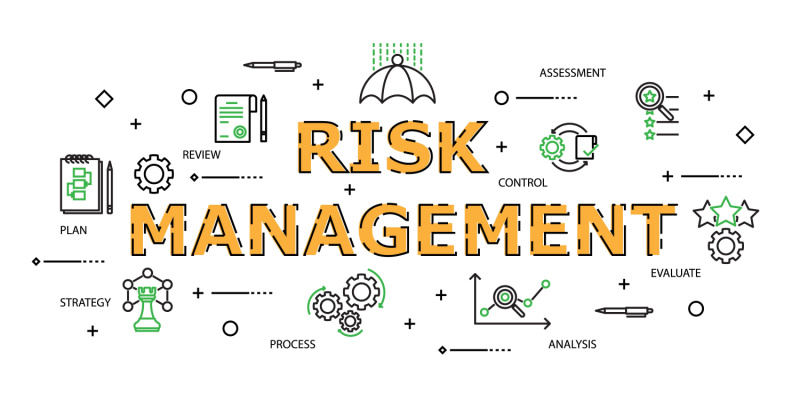
+971 58 539 7665

+65 9616 5641

+91 78994 42930

Risks are an unavoidable element of doing business; they are linked with potential events or situations that endanger the attainment of organizational goals. Risks are defined as events or conditions that have an impact on business operations. Business activities cannot be isolated from their hazards, but firms must take steps to comprehend the dangers they're subjected to in advance and be ready to deal with such risks. If you want guidance, get in touch with an outstanding risk management consulting service.
The methods of discovering, assessing, and resolving the business's risk elements are referred to as risk management. The primary goal of risk management is to handle all potential risk variables as quickly as possible in order to safeguard a firm from unanticipated risks and losses. Risks vary in nature and severity from business to business; risk management assists business organizations in identifying potential risks and taking corrective measures.
When it pertains to one's personal finances, risk management actions are essential. Risk management is defined as the act of identifying, assessing, and mitigating potential risks in order to achieve goals. Risk management is recognizing potential risks in a corporation and implementing methods to reduce or eliminate those risks. A successful system contributes to the safety of employees while also protecting business resources.
As we all know, risk management is the method of managing uncertainties. It also assists a firm in developing the necessary plans and strategies to identify potential risks and address them before they cause significant loss. Once a risk has been recognized, it is relatively simple to mitigate. It also gives a solid foundation for corporate decision-making.
Risk management helps a company to thoroughly assess its risk-management strategy and to build a robust structure to reduce and improve its chances of success. Furthermore, risk management gives reliable information regarding hazards, allowing the organization to identify high-risk risks that must be addressed proactively.
The following are some of the responsibilities of risk management services:
If you want to know some of the difficulties that risk managers face, they are:
Fortius Consulting, a UAE-registered management consultancy firm, specializes in business advisory and consulting services. We help identify business risks and provide incredible business growth opportunities and solutions with qualified chartered accountants. Elevate your business to a global level with us.
Risk is an inherent aspect of every organization that cannot be avoided, but we may mitigate such risks to some level by good risk management methods. The following points show the importance of risk management solutions for organizations:
Different types of hazards have different risk management strategies, but all of them have the basic process in common:
Also Read : Challenges & Complications of Internal Audit
Identifying Existing Risks
Risk management entails planning and brainstorming; business entities may collect their personnel and analyze all potential sources of risk. After determining the hazards, they must be prioritized. The risks that could significantly impact the business must be prioritized and addressed accordingly.
Risk Assessment
Risk must be evaluated based on the source of the incident and the amount of loss it may bring to the firm. Then appropriate steps must be made to remove it.
Developing a Reasonable Response
Following the risk assessment, the next stage is to take necessary steps and design appropriate plans to avoid such hazards in the future using the report.
Risk-prevention Mechanisms
After minimizing dangers, the firm must concentrate on developing a robust preventive system for avoiding future hazards using the plans and tactics utilized to mitigate existing risks.

Risk management strategies provide various benefits that render them a smart investment for every firm. Risk management programmes, for example, assist businesses in identifying potential dangers. Being conscious of these dangers enables firms to establish preparations to prevent or deal with specific problems when they arise. Being conscious of these dangers enables firms to establish practices to prevent or deal with particular problems when they arise.
Many advantages accrue from effectively mitigating risk that may positively or negatively impact profitability and capital. Even firms with advanced governance, risk, and compliance procedures face obstacles. The following are some of the advantages of risk management:
The risk management methods discussed above should be used for any risk. It is essential to understand that risk management is not always a static process. You should review your risk management plan on a regular basis to see if it still meets your current goals and objectives. Contact Fortius Consulting Services, one of the best business consulting services, if your firm needs help managing risks.
